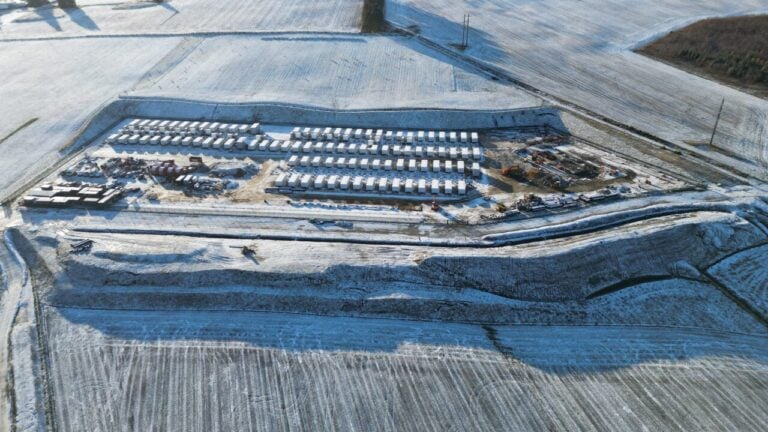A total of 120MW/140MWh of grid-scale battery energy storage system (BESS) capacity came online in January 2025, bringing the UK’s total operational capacity to around 6GW/8.3GWh.
Meanwhile, the amount that is now under construction has reached 8.2GW/18.7GWh. That means that, assuming no significant delays or cancellations, the UK’s BESS capacity should increase by at least 134% by GW power and 224% by GWh capacity in the next two or three years – to around 14.1GW/27GW.
And that pipeline of projects with planning approval secured, on which investors can now make final investment decisions (FID) to then launch construction, is now over a staggering 100GWh of BESS.
The total that now has planning approval is approximately 50.2GW/106.2GWh of BESS, after 2,455MW/5,300MWh of projects received the green light over the course of January, including development consent orders (DCO) for Nationally Significant Infrastructure Projects (NSIPs).
Keen-eyed readers will note that this figure is very close to the sum total of two huge BESS projects for which developers announced planning consent last month, Fidra Energy’s Thorpe Marsh and Innova’s Almhome Energy Hub, together totalling 2,425MW/5,150MWh of capacity, covered by Energy-Storage.news.
However, Solar Media Market Research analysis found that Innova’s approval was actually granted by Doncaster council in October 2024, before being announced by Innova in January 2025, so it isn’t included in January’s data – though Thorpe Marsh’s 1.4GW/3GWh is.
Those projects should be exempt from an overhaul of the grid connections that the National Energy System Operator (NESO) and regulator Ofgem are currently working on, set to take place over the course of 2025.
Looking further ahead, the total pipeline of projects which are in the planning process after applications were submitted has now reached 27.7GW/56.6GWh, with 57MW/114MWh of project capacity submitted for planning permission in January. 874MW/1,747MWh of screening and scoping applications were submitted over the course of the month, a step which comes prior to a full planning application.
The Report’s data shows that 2024 actually saw a dip in installations and projects submitted for planning, outlined in a recent guest blog by Market Research analyst Charlotte Gisbourne.
Energy-Storage.news rounded up some of the projects which were announced as receiving planning consent and entering construction over January and December, some of which will be within these figures, last week.

